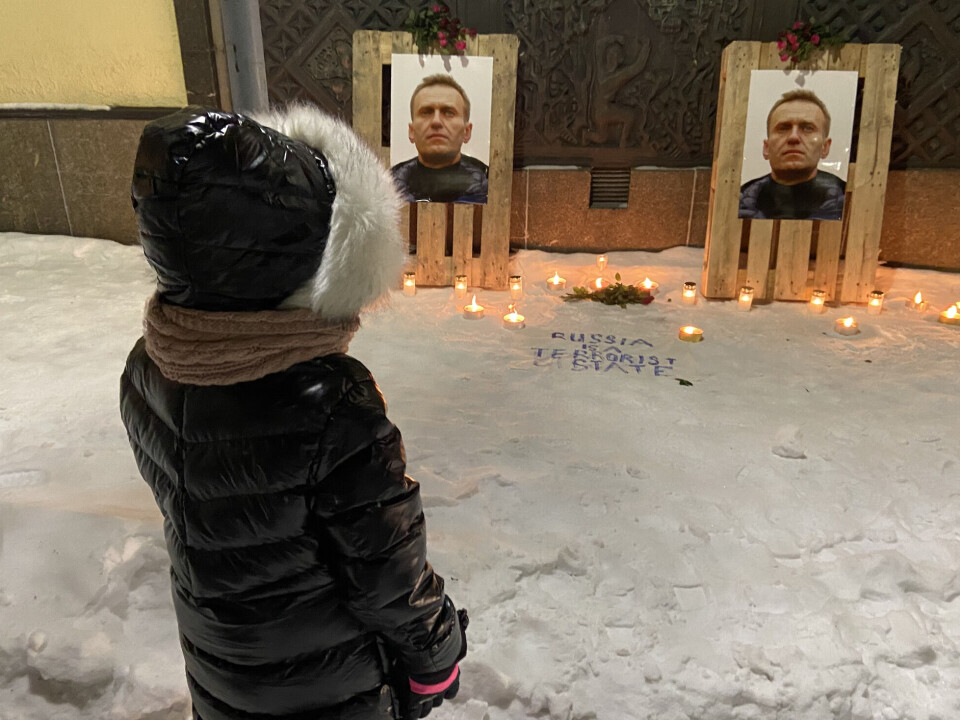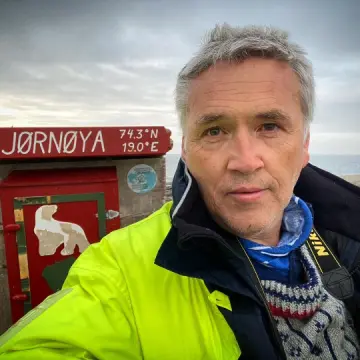
Joint statement:
"Russia must release all political prisoners"
A joint statement on the first anniversary of Alexei Navalny's death makes clear that the ultimate responsibility for his death lies with the Russian authorities.
Navalny supporters across Europe, driven into exile by unprecedented repression, are Sunday holding memorial events. In Russia, anybody who mentions the killed opposition leader, or his Anti-Corruption Foundation, risk fines or even prison.
Last month, even three of Navalny's lawyers were sentenced to several years in jail, allegedly for helping him to pass on messages from prison to outside supporters before he was killed.
A joint statement from Canada, Australia and 15 European countries, among them Russia's the Nordic-Baltic neighbors, calls on Moscow to release all 800 political prisoners.
"The Kremlin crushes peaceful dissent, maintains a climate of fear and undermines the rule of law. All to serve its own interests," the statement reads.
"As we reflect on Navalny’s enduring legacy, we continue to stand with civil society and human rights defenders working tirelessly to build a better future for Russia in the face of immense personal risk," the governments make clear.
The EU’s High Representative of Foreign Affairs, Kaja Kallas, said: “Alexei Navalny gave his life for a free and democratic Russia."
She added: "Today, his lawyers remain unjustly imprisoned, together with hundreds of political prisoners. Russia must immediately and unconditionally release Alexei Navalny’s lawyers and all political prisoners."
Bordertown candlelights
Outside Moscow's consulate general in the Norwegian border town of Kirkenes, people continue to bring flowers and candlelights to the ad-hoc memorial placed on the evening of Navalny's death on February 16, 2024.
"Russia is a terrorist state," reads a small banner placed in front. Kirkenes is a short 15 minutes drive from the border to the Murmansk region, one of the places visited by Navalny and where his local staffers frequently revealed shameful facts about how authorities were squeezing the democratic life out the society.
In Kirkenes, a CCTV camera on the wall of the Russian diplomatic mission is used to closely monitor those bringing flowers and candlelights to the home-made memorial.
In Moscow, where Navalny is buried, people on Sunday came to the Borisovskoye cemetery with flowers. The queue was hundreds of meters.
On the anniversary of Alexei Navalny’s death, people are coming to the Borisovskoye cemetery in Moscow, where he is buried. The line stretches for hundreds of meters. Video: Mediazona
— Mediazona English (@en.zona.media) 16 February 2025 at 13:33
[image or embed]
For years, Alexei Navalny's Anti-Corruption Foundation was the Kremlin's biggest political threat. The group exposed massive corruption among top Putin officials.
Navalny once described Russia's ruling party, United Russia, as a "party of crooks and thieves."
In 2020, during a campaign tour to Siberia, Alexei Navalny was severely poisoned with the nerve agent Novichok. He was medically evacuated to Germany, but decided to return to Russia a few months later. At the airport in Moscow, Navalny was immediately detained and soon sentenced to prison.
Alexei Navalny was killed in the remote Arctic prison camp of Kharp on February 16, 2024.
When the Barents Observer called Kremlin hardliner Nikolai Patrushev and asked why Navalny's dead body was not released to his mother, the top security hawk said "the ones that have an interest in the life of Navalny are actually in America."


















